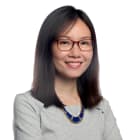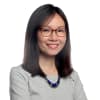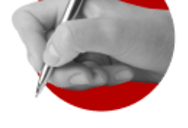At P&G, promoting equality at the workplace includes getting men to recognise gender bias

Mr Michael Tan attended a workshop that alerted him to gender biases, while Ms Cecilia Tan said she benefited from a talent accelerator program at multinational firm Procter & Gamble. (Photo: Tang See Kit)
SINGAPORE: “Don’t run like a girl” was what Michael Tan used to say occasionally when he went jogging with his 12-year-old son. But he stopped doing so after attending a workshop on unconscious biases.
“I started asking myself what does that even mean and I realised I’m not helping my son by using phrases like these. I’m more careful now – just say ‘Run faster’. Why does it have to be ‘Don’t run like a girl’?”
The same workshop also got the 44-year-old, who is the human resource director for Procter & Gamble’s (P&G) Asia-Pacific headquarters in Singapore, to be more aware of such biases at work.
This includes “blind spots” such as thinking that overseas assignments may be more suitable for men as women have family commitments, he said.
Better able to recognise these biases now, Mr Tan wants to do more. “When we do talent reviews, my role is to ensure we give equal opportunities to both men and women. After the workshop, I’m now able to say: ‘Have you asked her what she wants? Maybe she still wants to develop her career even after having a kid.’”
Company policies can also be written in a more inclusive and gender-neutral manner, he added.
The workshop that Mr Tan described as “very beneficial” is part of the “#WeSeeEqual” program which P&G has in place to advance gender equality.
Called Men Advocating Real Change (MARC), it helps participants to identify gender biases through activities and dialogues spanning one and a half days.
The multinational consumer goods firm told CNA it encourages both male and female employees to attend the workshop, although it is an “imperative” for those in senior positions as that can help to “create a ripple effect”.
READ: Commentary: The unequal, unnoticed life of a female worker
Feedback for MARC has thus far been “outstanding as people felt it opened their eyes to insights and unconscious biases,” said Ms Balaka Niyazee, the executive sponsor of P&G’s gender equality campaign in Asia Pacific, Middle East and Africa.
“At P&G, we believe that gender equality is not just a women’s issue. Men are equally important to partner and co create solutions to address gender equality,” she added.
Since making the workshop available at its Asia-Pacific offices last year, more than 100 P&G employees have been trained.
In Singapore, 56 employees, mostly senior managers and above, have attended the workshop this year. Slightly more than half were males.
“There were many ‘Ah-ha’ moments for a lot of the senior leaders who thought they did not have any gender biases,” recalled Mr Tan. “I found it very beneficial."
MENTORSHIP AND OTHER SUPPORT
For initiatives like MARC, P&G Asia Pacific was presented with the US Secretary of State’s Award for Corporate Excellence (ACE) earlier this month.
Given out by the US Department of State’s Bureau of Economic and Business Affairs, the award in women’s economic empowerment recognised the company as “a leading voice in the gender equality movement” across 16 Asia-Pacific countries.
The company’s “#WeSeeEqual” program has improved female representation at all levels, a media note for the ACE said.
Women make up half of P&G’s manager positions in Asia Pacific, as well as 35 per cent of director- and higher-level executive roles. The latter is higher than an average of 10 per cent in Singapore, it added.
With executive mentorship, flexible parental leave and childcare programs, P&G’s policies constructed a "workplace that supports and empowers women leaders", the note said.
READ: Commentary: Overlooked and underpaid, women must speak up and put themselves out there
Ms Cecilia Tan, director of government relations and public policy for Asia Pacific, said she relished the opportunity to be part of the company’s Women’s Accelerator Program.
The program helps high-potential female employees to develop skills for senior-level roles. Those selected get to be mentored by a “business sponsor” of a much higher rank within the company.
For Ms Tan, her “sponsor” was the then-vice president of finance who guided her through many challenging projects. Along the way, she also gained valuable exposure in dealing with business leaders and built up confidence in areas where she felt she was lacking in, such as public speaking.
The company’s “safe environment” also means that Ms Tan, a mother of one, had no qualms telling her manager that she would have to sit out of a key annual conference this year as it clashed with her daughter’s PSLE exams.
“The first thing my boss said was to focus on my daughter and make sure I’m there for her,” the 46-year-old said. “The safe environment is a big plus for women.”
READ: Narrowing gender gap can add S$26b to Singapore’s GDP by 2025: Report
Ms Niyazee said P&G’s policies have “dramatically improved” how it supports women employees across all levels.
Personally, she has seen how the company made improvements in closing the gender gap, as she rose through the ranks to become the chief executive of P&G’s division in South Korea.
When she first started out in P&G’s sales department in 1999, the distributors, who were all men, would question her ability to travel across western India to check on the products sold.
“Compared to when I started my career, I can definitely notice changes and progress, and much of it is because we are all much more aware,” Ms Niyazee told CNA.
“But while progress is certainly visible, the world still has a long way to go,” she said, citing a 2018 report from the World Economic Forum which predicted it will take more than 100 years to achieve gender equality based on the current rate of progress.
READ: Commentary: Gender equality is not just a 'women’s issue'
As such, P&G views gender equality as a “business imperative” with regularly-reviewed goals.
Among its commitments for 2019, it aims to spend US$150 million (S$205 million) on women-owned businesses in Asia Pacific, Middle East and Africa over the next three years.
In Singapore, it launched a development program involving 19 women entrepreneurs earlier this year. The initiative was aimed at providing training to female business owners, so as to further develop their capabilities and help them grow their businesses.
As for MARC, more sessions are being planned in Singapore and across the region.
“After one session each in Japan and Korea, we are planning at least three more sessions in the Asia-Pacific region during this financial year,” a spokesperson said.







